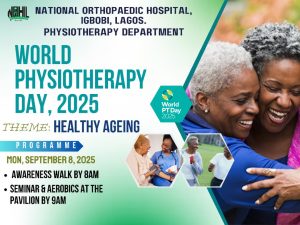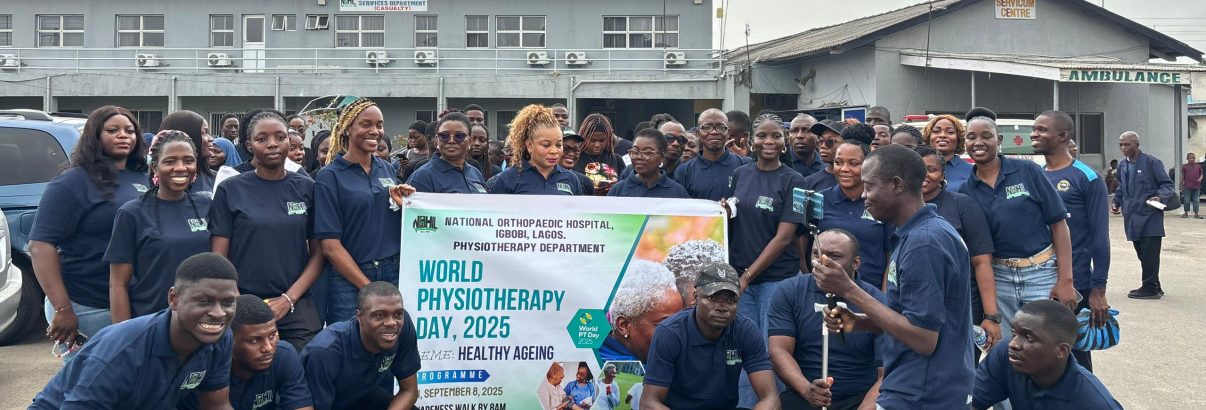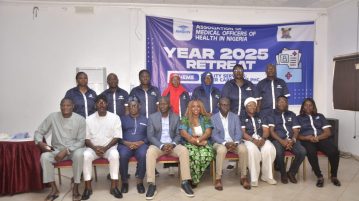World Physiotherapy Day, celebrated globally on September 8, highlights the essential role of physiotherapy in improving quality of life.
This year, the Physiotherapy Department of the National Orthopaedic Hospital, Igbobi, Lagos (NOHIL), joined the international community in marking the occasion under the theme: “Healthy Ageing: Preventing Falls and Frailty in Older Adults”. The campaign emphasises the significance of physiotherapy and physical activity in promoting independence, mobility, and overall well-being among older adults.
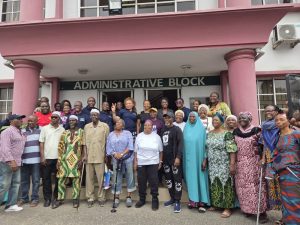
The celebration commenced at 9 a.m. with an awareness walk around the hospital, involving physiotherapists, elderly patients, students, and well-wishers. The walk ended at the Administration Block, where the Director of Physiotherapy, Mrs. F.A. Adepetun, commended the hospital management—including the Acting Medical Director and departmental heads—for their support. Participants then engaged in light aerobics and dance to reinforce the message of staying active.
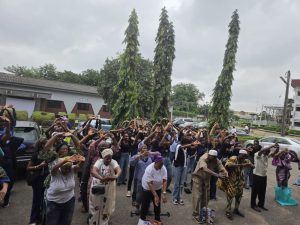
Light aerobics session
The main program began with an opening address by Mrs Adepetun, followed by a presentation from a representative of Athrella Herbal Ointment, who emphasised the relevance of physiotherapists in pain management.
Mrs. A.A. Adeoye, Head of the Geriatrics Unit, Physiotherapy Department, delivered the keynote lecture on healthy ageing. She noted that global research indicates that 28–35% of individuals aged 65 and above experience falls annually, with the rate increasing to 32–42% among those over 70 years.
At NOHIL, departmental records (January 2021–January 2022) revealed that 25 out of 74 patients over age 65 (34%) reported a history of falls, with 40% experiencing recurrent falls. Mrs Adeoye identified key causes of falls, including environmental hazards (31%), dizziness or vertigo, gait and balance disorders, postural hypotension, visual impairments, and idiopathic (unknown) factors.
She emphasised that fall prevention must be prioritised due to its far-reaching consequences: loss of independence, fear of falling, anxiety, reduced self-esteem, and diminished quality of life. Central to physiotherapy, she explained, is goal-oriented rehabilitation and patient engagement. “That you are getting old does not mean you should confine yourself to your house,” she urged, encouraging older adults to remain active and to use mobility aids such as walking frames or canes without stigma.
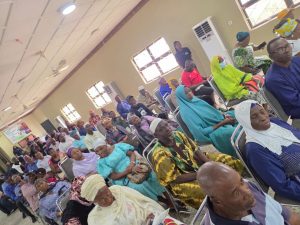
To reinforce the importance of movement, another aerobic session was held, reminding participants not to remain sedentary for long periods. A lively question-and-answer session allowed older adults to raise concerns, which Mrs Adeoye addressed comprehensively.
A few elderly patients also shared their recovery journeys, testifying to how physiotherapy had enabled them to progress from immobility and severe pain to restored independence. The event concluded with interactive activities in the physiotherapy gym, including board and card games, fostering both social interaction and mental stimulation.
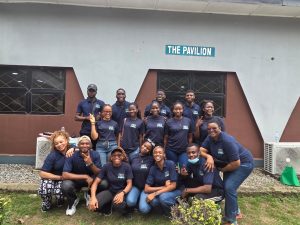
About Author:
Isiaq N. Oluwamayowa is a physiotherapist with interests in sports physiotherapy, health promotion, and patient-centered care. She is also a writer and health communicator, passionate about advancing physiotherapy practice, promoting mental health awareness, and fostering a culture of reading as a tool for lifelong learning and well-being.
